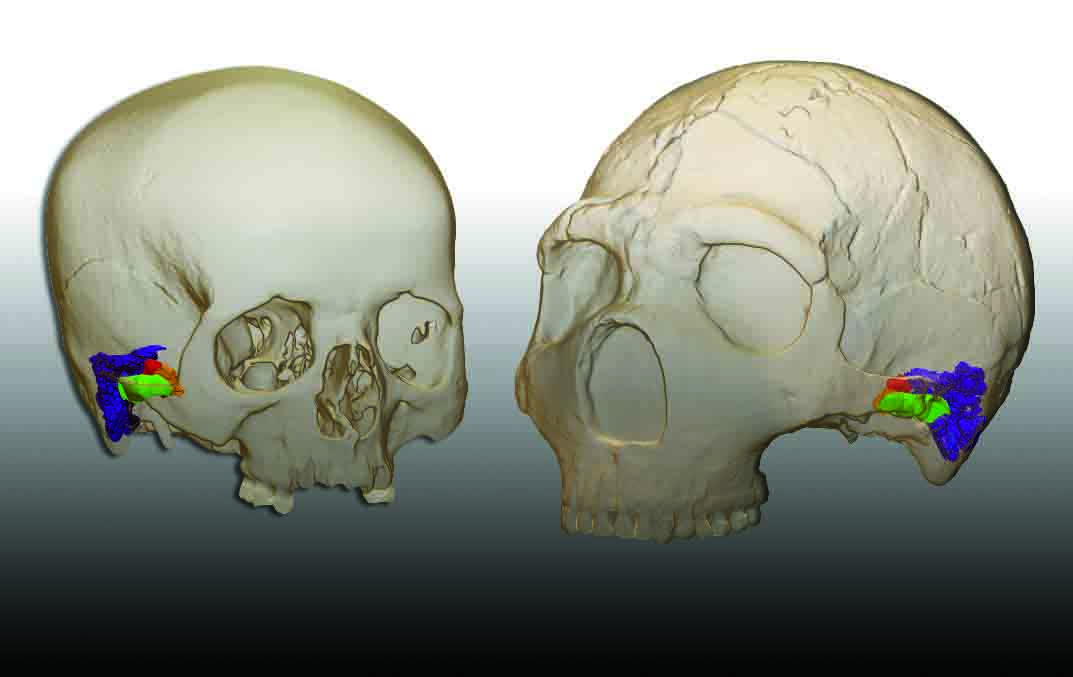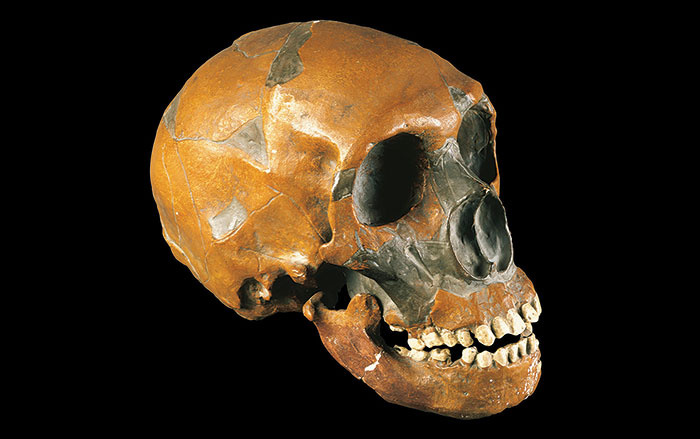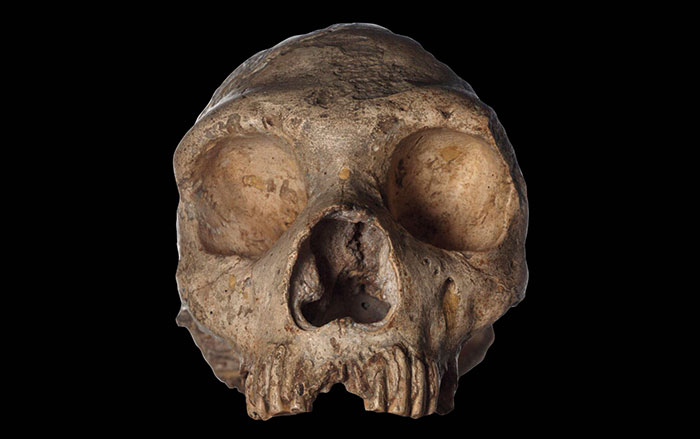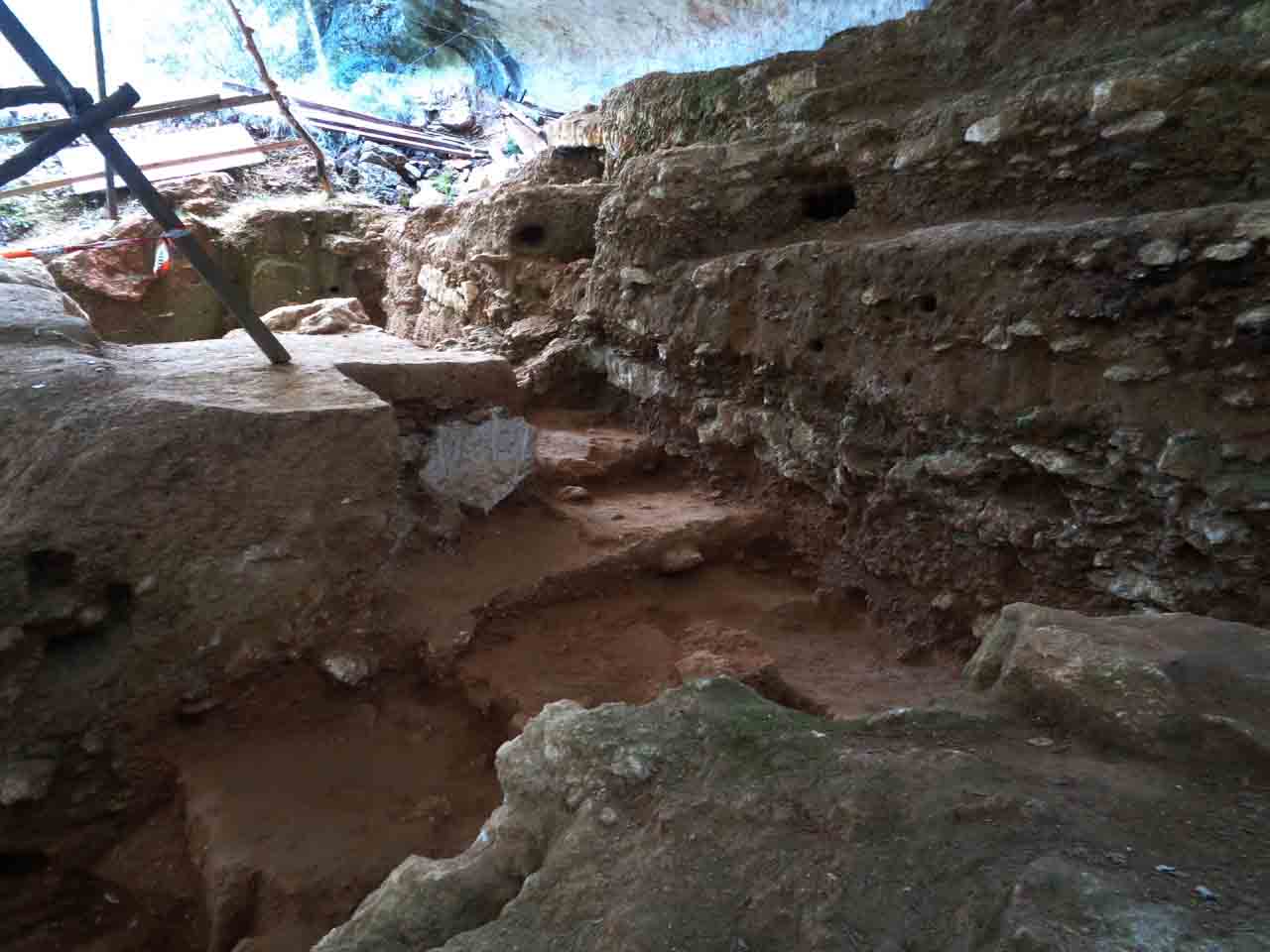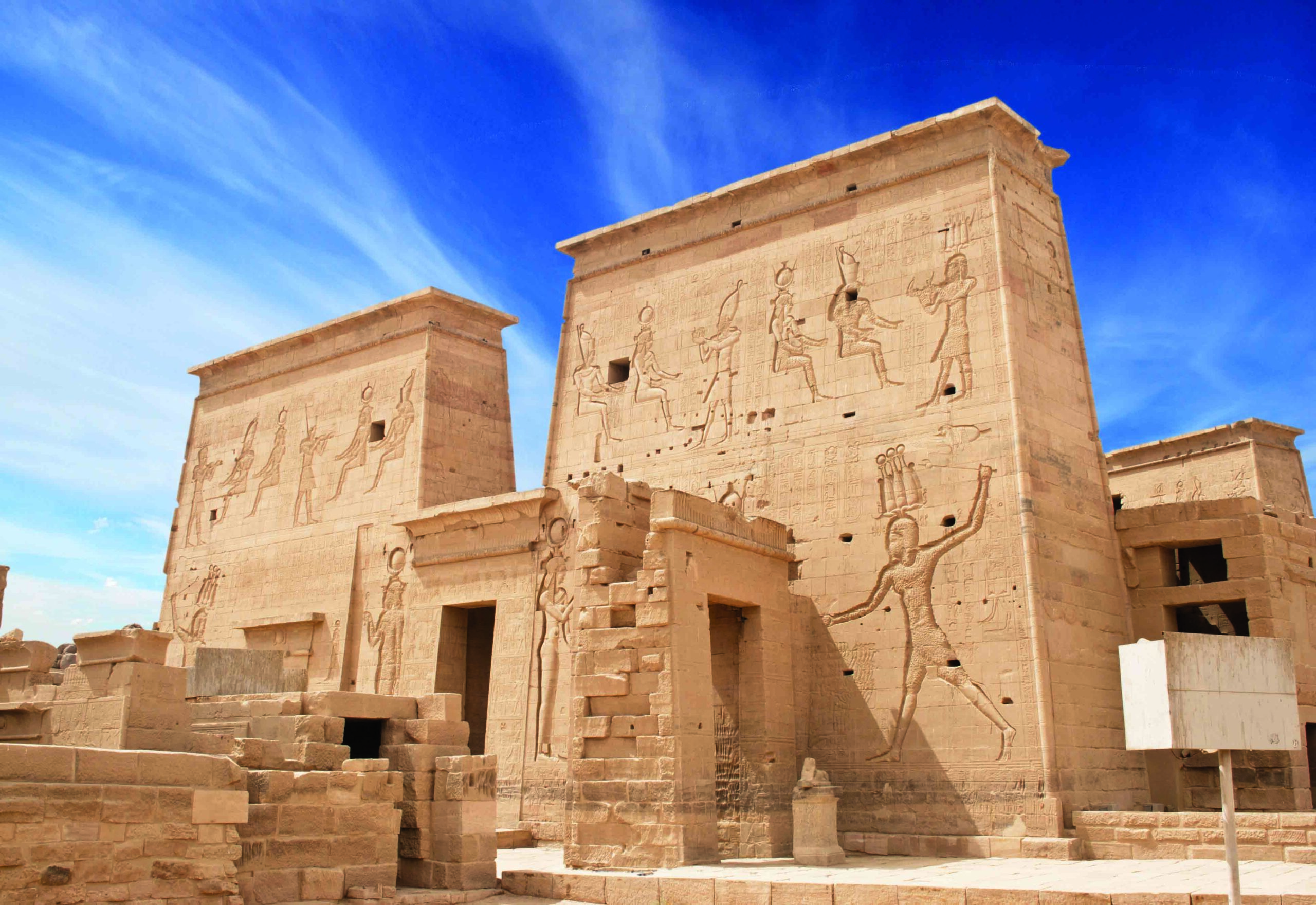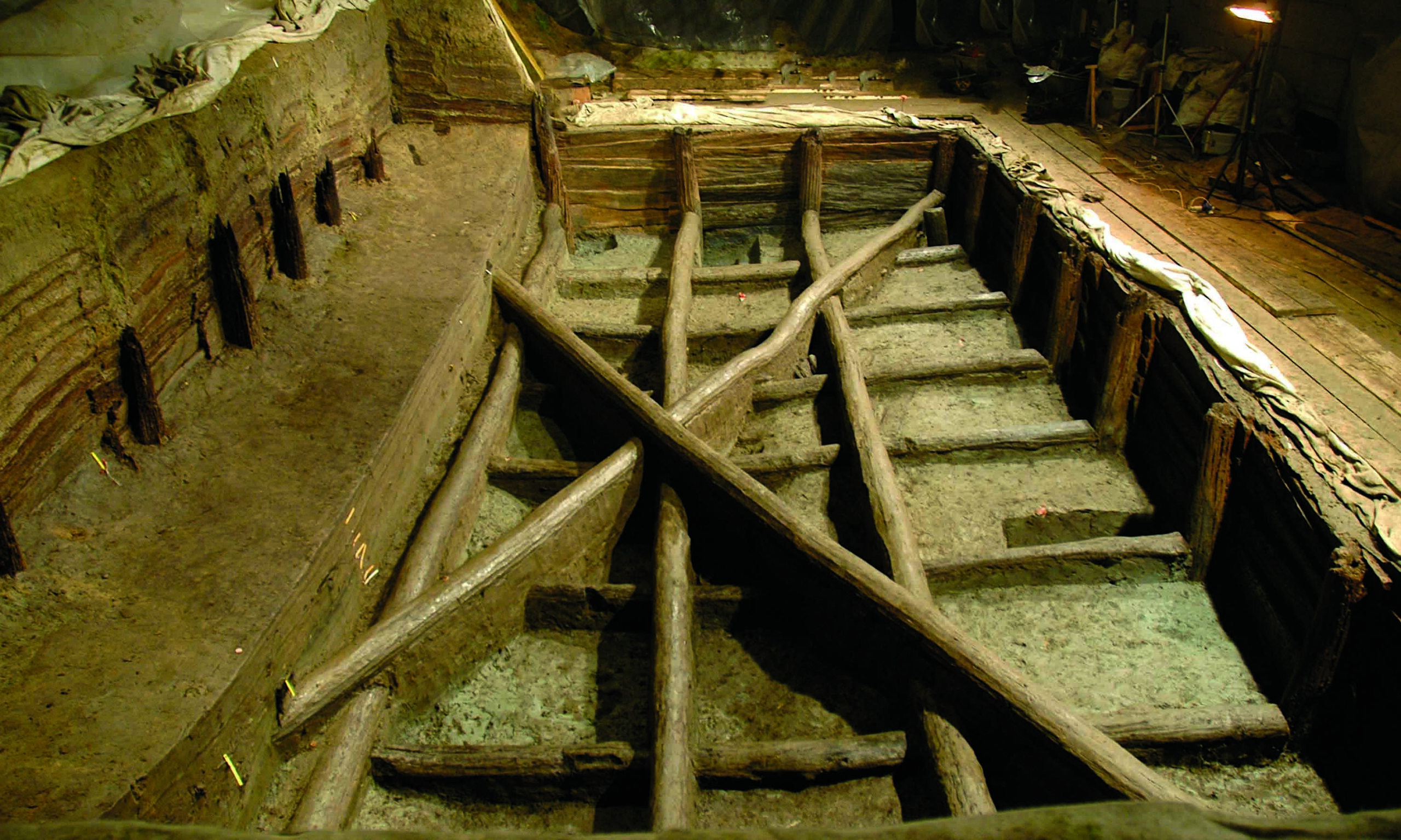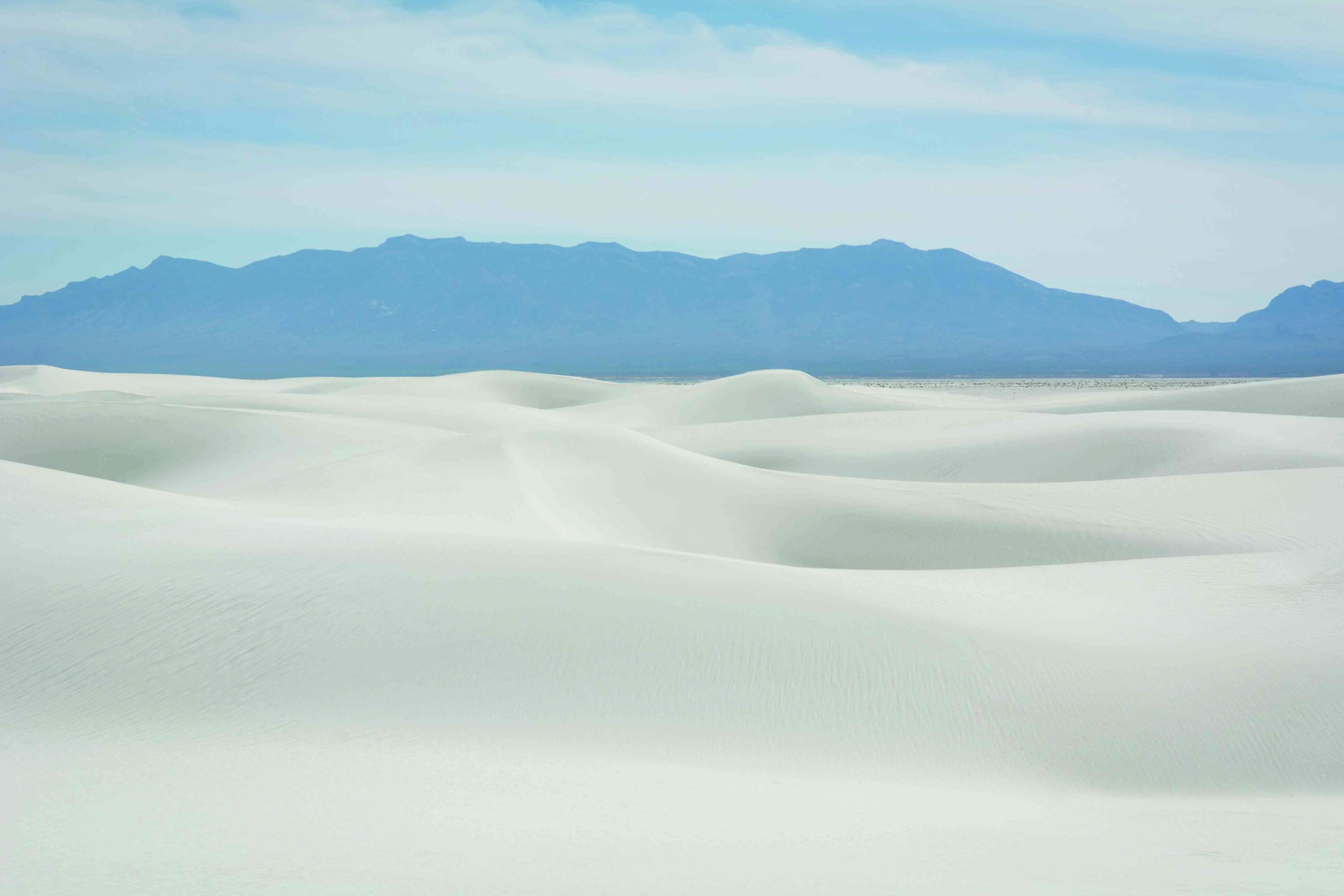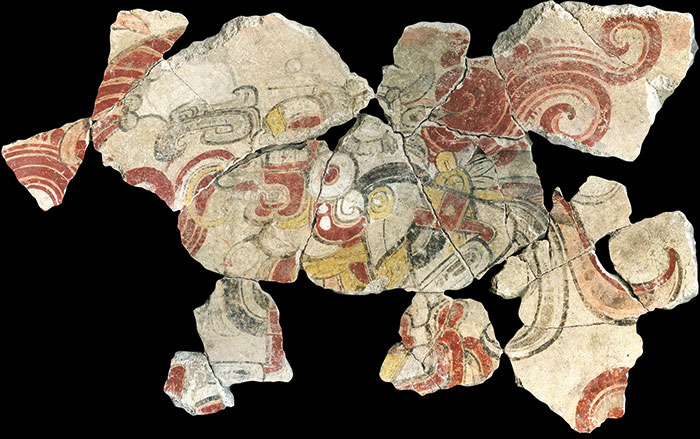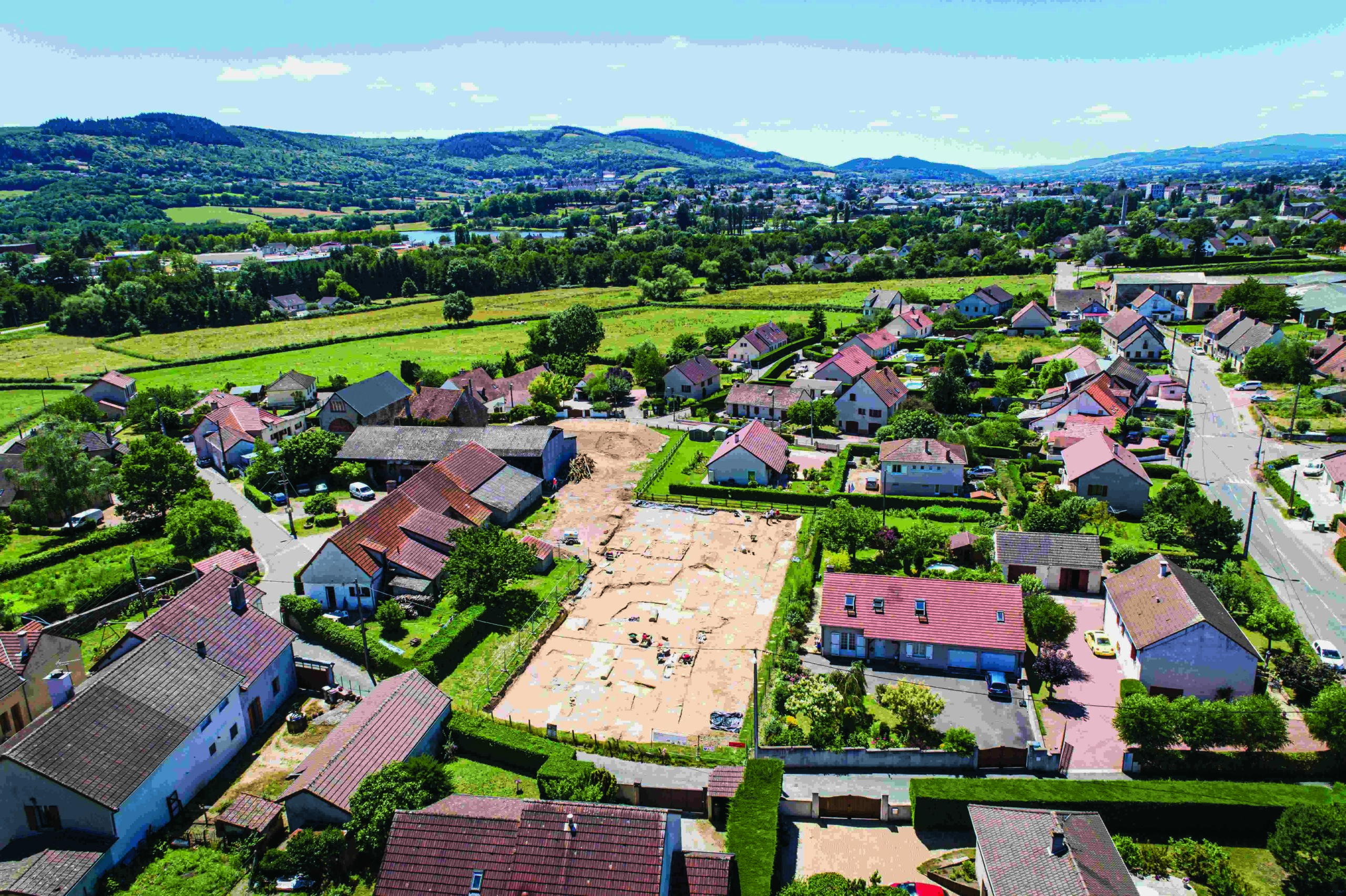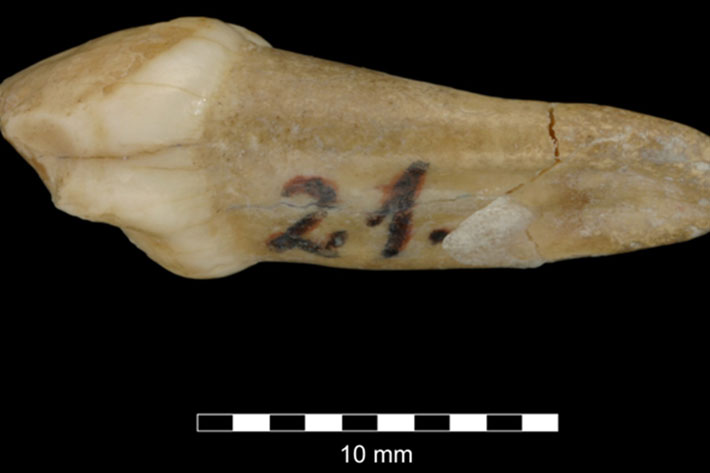
CANTERBURY, ENGLAND—According to a statement released by the University of Kent, Neanderthal infants may have developed faster than modern human babies, based upon the study of a 120,000-year-old Neanderthal milk tooth discovered in what is now Croatia by an international team of researchers led by Patrick Mahoney of the University of Kent. The enamel that covers baby teeth has lines demarcating enamel produced before and after birth, and the space between the lines indicates how much enamel was grown in a single day, according to prior research. Analysis of the lines in this tooth indicates that the tooth erupted from the child’s gum between four and seven months of age. In modern humans, baby teeth usually begin to appear between seven and ten months of age. Similar markings were also found on the three intact teeth in another Neanderthal jawbone. The researchers suggest that Neanderthal children may therefore have begun eating solid foods earlier than modern human children, perhaps to fuel their potentially larger brains. Read the original scholarly article about this research in Proceedings of the Royal Society B: Biological Sciences. To read about a Neanderthal child's tooth uncovered in the Zagros Mountains, go to "World Roundup: Iran."


